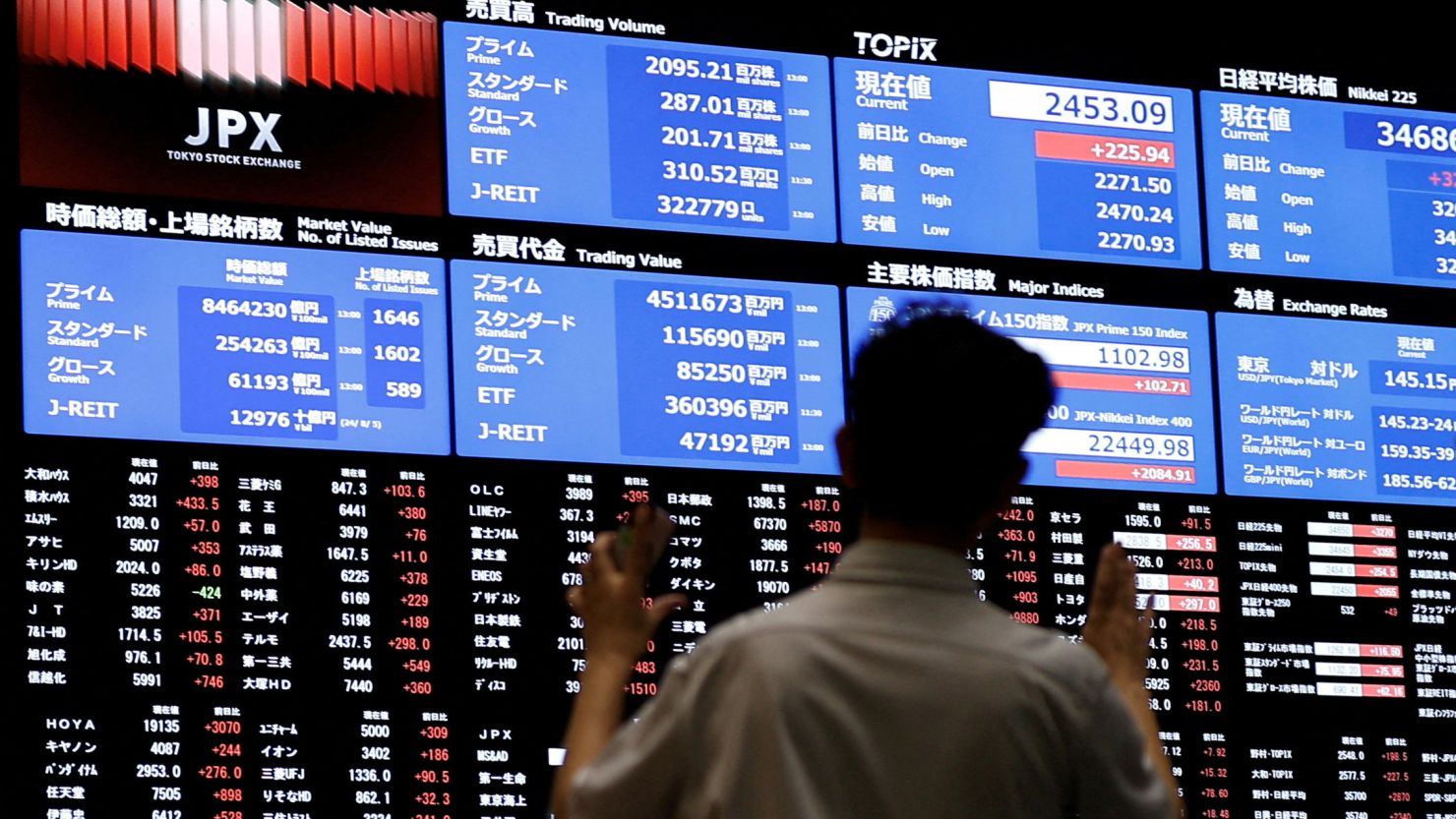Asia-Pacific markets slid on Thursday as investors reacted to U.S. President Donald Trump’s proposed tariffs on autos, chips, and pharmaceutical imports, coupled with concerns that the Federal Reserve may keep interest rates higher for longer.
Trump announced that the new duties could be enforced as soon as April 2 but did not clarify whether they would target specific countries or be broad-based. The uncertainty around the tariffs has added volatility to global markets.
Japan Leads Regional Losses
Japanese markets posted notable declines for the second consecutive day. The benchmark Nikkei 225 dropped 1.24% to close at 38,678.04, while the broader Topix index fell 1.18% to 2,734.60.
Adding to market jitters, the yen strengthened to a more than two-month high of 150.52 against the U.S. dollar amid speculation of further rate hikes by the Bank of Japan this year.
Mixed Performance Across Asia
In South Korea, the Kospi ended the day 0.65% lower at 2,654.06, while the small-cap Kosdaq shed 1.28% to close at 768.27.
Mainland China’s CSI 300 dipped 0.29% to settle at 3,928.90, and Hong Kong’s Hang Seng Index saw a sharper decline, falling 1.60% to 22,576.98.
Australia’s S&P/ASX 200 extended its losing streak for the fourth straight session, dropping 1.15% to close at 8,322.80. Economic data revealed that Australia’s seasonally adjusted unemployment rate rose to 4.1% in January, aligning with Reuters’ forecasts.
Indian Markets Also in the Red
Indian stocks were also affected by the regional downturn. The Nifty 50 slipped 0.15%, while the BSE Sensex index dropped 0.31% as of 2:15 p.m. local time.
Investor Caution Amid Uncertainty
The proposed U.S. tariffs and concerns over prolonged high interest rates continue to weigh on investor sentiment across the Asia-Pacific region. Market participants remain cautious as they await further clarity on trade policies and central bank strategies in the coming weeks.






